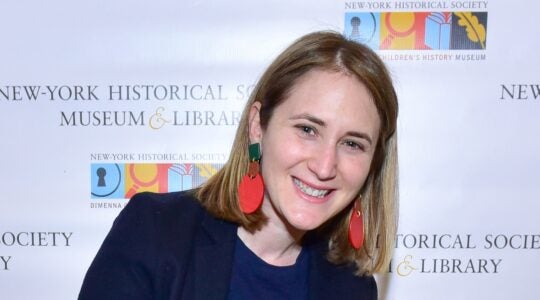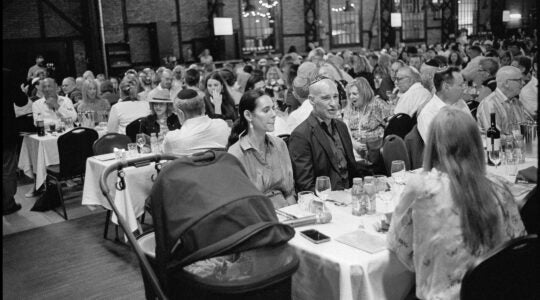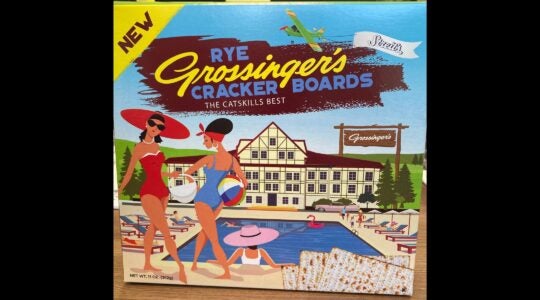There was more than a little irony when in the early 1940s, Jews — confined by brick and barbed wire inside the Warsaw Ghetto — staged a cabaret singing jaunty melodies like Irving Berlin’s “Blue Skies.”Whether the tunes comprised a social satire of their desperate situation, whether they expressed their hopes and dreams for better times ahead, or some combination thereof, many Holocaust-era Jews found solace in music. As a tribute to those who sang, when they might have otherwise wept, Hillel: The Foundation for Jewish Campus Life just launched “Cabaret at the Edge of the World: Performing in the Shadow of the Holocaust.” The project will enable students at Hillels across the world to play-act the once-popular Yiddish, Polish and English ditties European Jews penned and performed during the Nazi era.The $40,000 project — designed by Rabbi Jeffrey Summit, an ethnomusicologist and the executive director of the Tufts Hillel — was officially inaugurated Monday at Hillel’s professional staff conference in Stamford, Conn. There Hillel leaders were treated to a sample cabaret concert by klezmer artist Hankus Netsky, and received a 100-page program guide that included sample scripts, lyrics, a CD of period music and pre- and post-performance educational materials. “Cabaret at the Edge of the World” is based on “Warsaw Ghetto Cabaret,” a 1993 musical review performed by students at the Tufts Hillel. Rabbi Summit, selected the music for the new endeavor with Netsky and Philip Bohlman, a professor of music at the University of Chicago. The men were careful not to choose music that the Nazis forced Jews to perform “in order to impose a false sense of normalcy” at the camps, Rabbi Summit said. “We hope students will understand just how strong and vibrant Jewish culture remained, even during the worst of times,” said Rabbi Summit.
The New York Jewish Week brings you the stories behind the headlines, keeping you connected to Jewish life in New York. Help sustain the reporting you trust by donating today.




